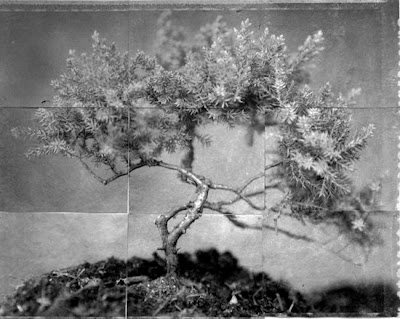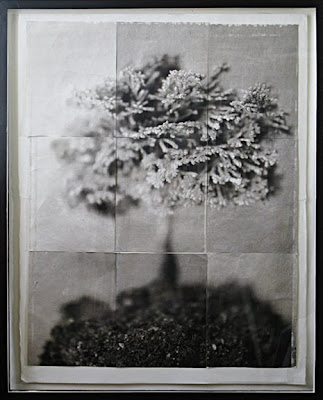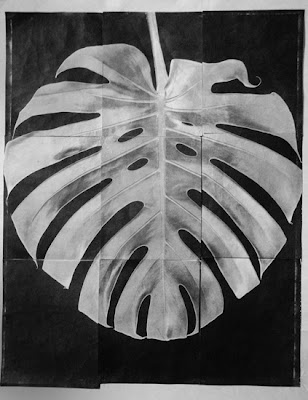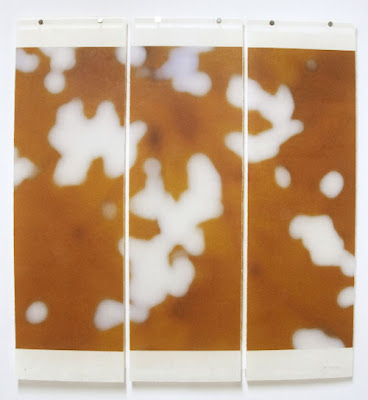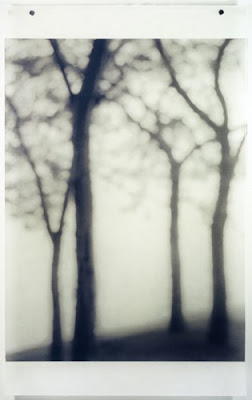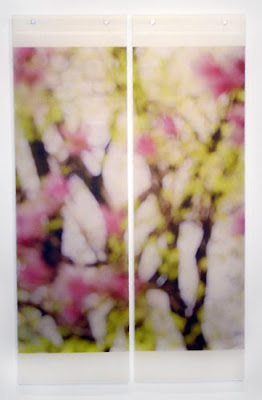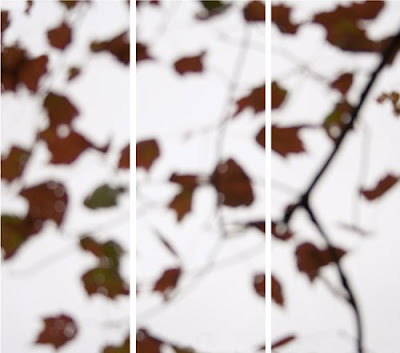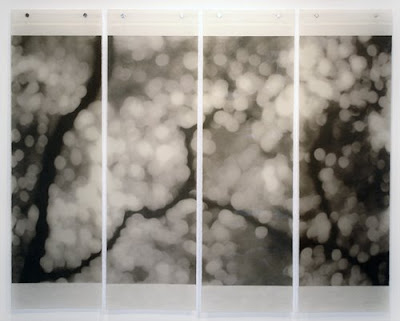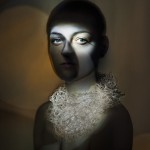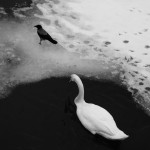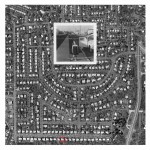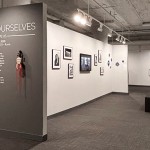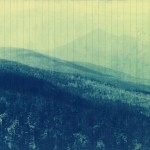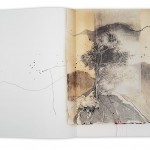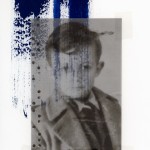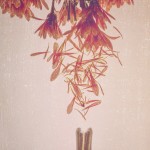Charles Grogg and Jeri Eisenberg
continuing to look at photographers from Photolucida
I am always amazed at how photographers and artists continue to reinvent ways to portray the natural world. Two photographers that attended Photolucida were showcasing nature in beautiful new ways.
Charles Grogg’s images of Bonsai trees and flowers are “platinum/palladium, handcoated on handmade Japanese gampi. Each piece of the nine-piece image is individually exposed under sunlight, washed, dried, and then sewn with cotton thread onto a larger piece of Japanese washi. Each print is then float mounted in a walnut, maple, or kiaat espresso-stained artist’s frame.”
It’s hard to describe the delicacy of these hand stitched images–beautifully crafted, elegant, yet substantial, with evidence of photographer’s hand in the stitching.
“These are the things I want to put in my pocket: blooms, leaves, architecture, the sensual lines of our human form. I want to look at them at will, alone in an intimate space, to be sure they somehow belong to me. For all our global consciousness, I cannot let go of the wish to keep things familiar, to bridge the gulf between myself and others that only seems to get wider and less traversible than ever with all our new technologies. So I ask others to look at and touch my work, and to be close to what they desire.”
Jeri Eisenberg has discoved a way to showcase nature in sumptuous panneled ink and encaustic on Kozo paper prints. Made to hang without frames, these evocative images have a translucent preciousness, floating not only off the wall, but slightly out of our range of perception.
“I feel no need to seek out grand vistas or exotic locales, majestic mountain ranges or rushing rivers. It’s the common wooded landscape of my day to day life that captures my attention. Many of the images in my current work are from areas close to my home; others are from farther flung places, but places that I just happen to be for one prosaic reason or another. They are places that are generally more ordinary than spectacular.
By photographing the treed landscape with a purposefully oversized pinhole or a radically defocused lens, however, I capture it as it is not often seen. The images are firmly grounded in the natural world, a particular place, a particular season, a particular time. But by obscuring detail, only the strongest brush strokes emerge: the images become sketches with light, literally and figuratively. They tend to float between there and not there, to dissolve into abstraction and reconfigure themselves back into recognizable form.”
Posts on Lenscratch may not be reproduced without the permission of the Lenscratch staff and the photographer.
Recommended
-
Ragne Kristine Sigmond: Portraits of Painterly LightDecember 2nd, 2025
-
Mary Pat Reeve: Illuminating the NightDecember 1st, 2025
-
Ricardo Miguel Hernández: When the memory turns to dust and Beyond PainNovember 28th, 2025
-
Pamela Landau Connolly: Columbus DriveNovember 26th, 2025
-
MATERNAL LEGACIES: OUR MOTHERS OURSELVES EXHIBITIONNovember 20th, 2025


